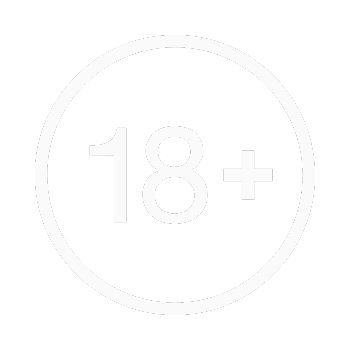
What's on this page
As a passionate bettor, I’ve always been fascinated by the variety of betting options available to players, especially when it comes to Fixed-Odds and Spread Betting. Both are popular in the UK and offer unique experiences, but they are fundamentally different in their structure and how you approach them. Whether you’re a seasoned player or just starting, understanding these differences is key to making informed decisions. So, let’s dive deep into each type of betting and explore the pros, cons, and best strategies for both.
What is Fixed-Odds Betting?
Fixed-Odds Betting is one of the most common and straightforward types of betting. Here’s how it works: you place a wager on an event at a set set of odds, and if your prediction is correct, you win based on those odds.
For example, let’s say you bet on a football match with odds of 3/1 for a specific team to win. If you place a £10 bet and your team wins, you would receive £30 (your original £10 stake + £20 profit).
The beauty of Fixed-Odds Betting is its simplicity. It’s easy to understand, and most people, even beginners, can quickly grasp the concept. You don’t need to worry about fluctuating odds or the complexity of how much you stand to win—it’s all laid out right in front of you.
Key Features of Fixed-Odds Betting
- Predictable Outcomes: You know exactly how much you can win.
- Fixed Returns: Your potential winnings are set when you place your bet.
- Simple to Understand: Great for new players who want to keep it simple.
Example: If you place a £10 bet on a popular sports event with 3/1 odds, you stand to win £30 if your prediction comes true. The payout is fixed, and there’s no variability.
What is Spread Betting?
On the other hand, Spread Betting offers a much more dynamic experience. Instead of betting on a fixed outcome, you’re betting on the odds changes themselves or how much the final result deviates from a predicted point.
For instance, in a football match, you might bet that the final score will be 3-2. The spread might be set at 2.5 to 3.5, meaning you’re betting that the actual score will fall within that range. Your stake isn’t fixed, and it can change based on how close the actual outcome is to the spread.
What sets Spread Betting apart is that your potential profit or loss can vary widely. The closer your prediction is to the spread, the more you win. Conversely, if you’re far off, you could lose significantly. This makes Spread Betting much more volatile, which could be a thrill for some, but overwhelming for others.
Key Features of Spread Betting
- Potential for Higher Profits: The more accurate your prediction, the higher your rewards.
- Variable Risk: Your losses can be greater than your original stake, depending on how far off the actual outcome is.
- Dynamic Betting: The amount you can win or lose changes depending on the market.
Example: In Spread Betting, you’re not just betting on a simple win/loss. You might bet £1 per point over or under a spread. If the actual score is 3-1, and you bet on 2.5-3.5, you win based on the difference from the spread.
Key Differences Between Fixed-Odds and Spread Betting
Let’s break down the key differences between Fixed-Odds and Spread Betting to give you a clear picture of each.
Betting Structure
- Fixed-Odds: You place a set wager at predetermined odds. Your winnings or losses are based on the odds.
- Spread Betting: You bet on the odds changes or the margin between two points, with potential for fluctuating gains or losses.
Risk and Reward
- Fixed-Odds: With Fixed-Odds, the potential reward is clear. The risk is limited to your stake.
- Spread Betting: Here, the risk is dynamic. The better your prediction, the greater your reward, but your losses could also exceed your stake.
Betting Markets
- Fixed-Odds: Mostly limited to popular sports like football, horse racing, and tennis.
- Spread Betting: Available for a wide range of markets, including popular sports, financial markets, and political events.
Betting Strategies
- Fixed-Odds: Strategies often revolve around managing your betting bankroll and focusing on odds comparison.
- Spread Betting: Involves strategies around predicting the extent of odds changes and evaluating dynamic market movements.
Pros and Cons of Fixed-Odds Betting
Pros:
- Predictable and Easy: Beginners will find Fixed-Odds Betting to be straightforward and easy to understand.
- Lower Risk: Since you know exactly what you can win, you’re less likely to face unexpected losses.
- Wider Availability: Available for most popular sports, from football to horse racing.
Cons:
- Limited Potential for Huge Wins: While it’s safer, the reward is often capped.
- Lack of Flexibility: Once you place your bet, there’s no room for adjusting your stakes based on changes in the market.
Pros and Cons of Spread Betting
Pros:
- Higher Potential for Large Wins: If you’re accurate in predicting the spread, your rewards can be substantial.
- Variety of Markets: You’re not limited to just sports; you can place bets on financial markets, political outcomes, and much more.
- Dynamic and Exciting: For players who love high-risk, high-reward scenarios, Spread Betting is incredibly exciting.
Cons:
- High Risk of Losses: Since your losses can exceed your original stake, this form of betting is not for the faint-hearted.
- Requires Knowledge and Strategy: To do well in Spread Betting, you need a solid understanding of market movements and odds changes.
Which Type of Betting is Right for You?
Now that we’ve explored both options, let’s consider which betting style suits you best.
Consider Your Risk Appetite:
- If you prefer a safer, more predictable betting experience, Fixed-Odds may be your best bet.
- If you’re willing to take on more risk for potentially higher rewards, Spread Betting could be a thrilling option.
Skill and Knowledge:
- Fixed-Odds: Great for beginners or those who prefer simplicity.
- Spread Betting: Best suited for those with a bit more experience and knowledge of the betting markets.
Betting Objectives:
- If your goal is entertainment and you’re happy with modest returns, Fixed-Odds is probably the way to go.
- If you’re chasing larger wins and more excitement, Spread Betting offers that high-octane thrill.
Conclusion
Both Fixed-Odds and Spread Betting offer their own unique set of benefits and challenges. While Fixed-Odds Betting is easier to understand, less risky, and perfect for beginners, Spread Betting offers greater potential for bigger wins but comes with higher risks. By understanding your preferences, goals, and risk appetite, you can choose the right type of betting for you. Whatever you decide, always remember to manage your betting bankroll wisely and bet responsibly to ensure an enjoyable and safe experience.
Now that you have all the information you need, why not try out both betting styles in your next wager and see which one feels like the best fit for your style? Happy betting, and may the odds be ever in your favor!





